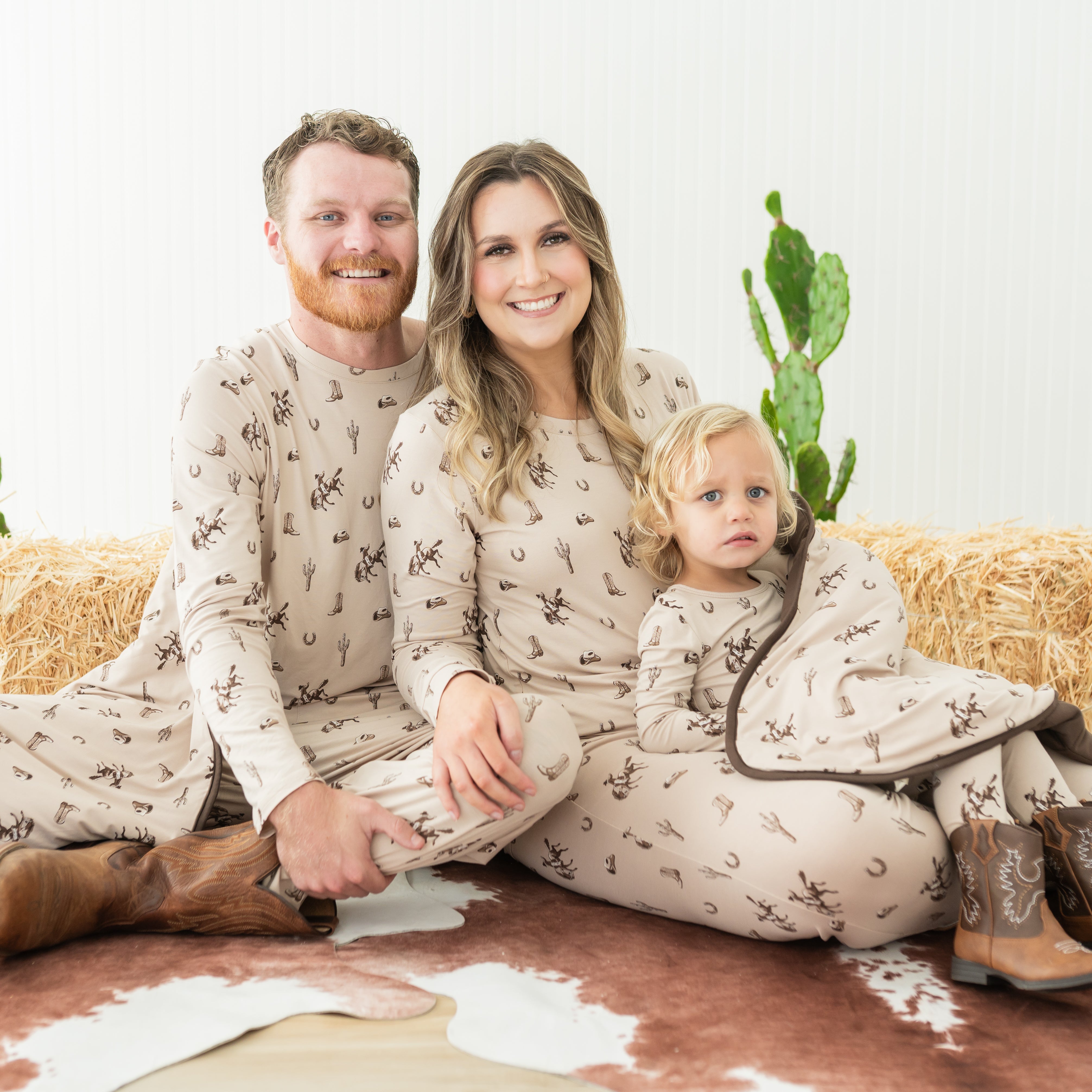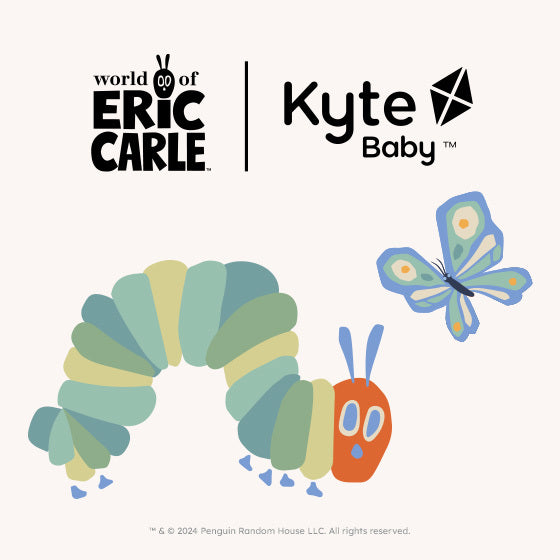Before having kids, you probably didn’t put too much thought into your sleeping habits. Sleep was just something people do, a period of rest necessary to keep our bodies functioning normally. But, for every new parent, sleep is the ever-elusive mystery that our world revolves around. We obsess over our babies’ sleep, trying every avenue available to help our babies sleep better, so that we finally can, too.
Sleep deprivation plagues all new parents, and, for many, it’s the hardest part about caring for a baby. We dream about the day our baby finally “sleeps through the night,” a phrase that comes to haunt every parent of littles. But, “sleeping through the night” is an ambiguous term, and if you polled 100 different people on its meaning, you would probably get 100 different answers.
Some consider “sleeping through the night” to mean a 4-6 hour stretch, some may consider it to mean going 10-12 hours with feedings in-between, and others would say that it means sleeping 12 hours straight without any feeding. Of course, “sleeping through the night” is also age-dependent! What that looks like at 2 months old is very different from what it looks like at 12 months old.
Sleepless nights as a parent are far from fun, but, unfortunately, they’re just part of the job sometimes! That’s not to say that you will be sleep deprived forever, but sleep deprivation comes in waves throughout the first few years for a number of reasons that include newborn sleep habits, sickness, traveling, etc. Here are all the questions we’ll be answering below:
- What does sleeping through the night mean?
- When should babies sleep through the night?
- When can babies sleep through the night without feeding?
- How can I get my baby to sleep longer at night?
- What keeps my baby from sleeping at night?
Getting your baby to sleep through the night is a very common challenge among all parents, and every baby is different. Don’t worry, you won’t be up all night rocking your teenager in 15 years! Your baby’s sleep–and yours—will improve as they grow, but we might first have to redefine what sleeping through the night means!
Here is a good review on safe infant sleep practices before we get started!
What Does Sleeping Through the Night Mean?
It is important to note that almost no one sleeps through the night without waking up. Scientifically speaking, we all wake up frequently throughout the night as a safety check. Even you, an adult, is likely to wake up at least once in the night after a vivid dream or just to use the restroom. Often, brief waking is part of your biological sleep cycle, since it is normal to come up closer to the surface (light sleep) before then heading off into the next cycle of sleep. If something disturbs our sleep when we are at the end of a sleep cycle, we can wake up quite alert and even have trouble getting back to sleep. If you wake up at the same time each night or at the same intervals, it can be a frustrating experience, but rest assured that this just means your internal clock and sleep mechanisms are working.
Around 4-6 months of age, your baby will start to get the majority of their sleep during the night, which means their sleep begins to consolidate. This is because the number of naps they take decreases as they get older. Although you can expect your baby to have longer stretches of sleep around this time, that does not mean they will yet “sleep through the night.” It just means they are developing more adult-like sleep patterns and may not signal to you every single time they wake throughout the night.
When Should Babies Sleep Through the Night?
Although we all wish there was a magic number, there is no definite answer to this. Anything a baby “should” do is absolutely baby-specific, and sleep is also dependent on your baby’s specific development! It’s hard for very young babies to sleep in longer intervals because of things like:
- The Moro reflex
- Needing to gain weight
- Having tiny tummies
- Difficulty adjusting to life outside of the womb
If you do have a baby that is sleeping for long stretches at night from a young age and your pediatrician clears you from having to wake them to eat, then enjoy that sleep!
If this is a baby-led situation, then you have nothing to worry about. A baby will start to sleep in longer stretches when they are starting to lose their Moro reflex, gaining weight well, taking in more calories during the day, and learning independent sleeping habits.
In the first few months of your baby’s life, you were probably up and down throughout at the night, soothing, feeding, and changing your little one. Though exhausting, it’s normal and necessary. Babies do not cry out of want, and it’s impossible to spoil a baby. They cry to have their needs met, and consistently meeting those needs facilitates bonding and develops secure attachment. However, as they get older, and when you have built a lot of good sleep associations, you will find that your baby can naturally settle themselves to sleep!
When Can Babies Sleep Through the Night Without Feedings?
Most of the time, we assume that a baby is waking during the night out of hunger. So, we feed them and they go back to sleep, and this repeats however many times throughout the night. Once your baby reaches a certain age and weight , the majority of pediatricians will agree that your little one can take in adequate ounces or calories during the daytime without metabolically needing feeds overnight. This is something to discuss with your pediatrician, as they follow your child’s growth curve and nutrition.
It is also important to note that babies wake up throughout the night for many other reasons unrelated to hunger, such as illness, developmental milestones, inability to return to sleep without assistance, being too hot or cold, or needing a diaper change.
How Can I Get My Baby to Sleep Longer at Night?
Although sleep solutions aren’t one-size-fits-all, the biggest things that improve night-time sleep are:
- Adequate daytime sleep
- Consistent routines
- Great sleep environment
- Encouraging baby to fall asleep with less assistance from you
Adequate daytime sleep is a huge contributor to sleeping through the night. Babies that do not sleep well during the day are often overtired at bedtime. A baby that does not nap will not make up for their “sleep debt” by sleeping longer at night. Overtired babies generally have a hard time falling asleep and staying asleep, leading to interrupted nighttime sleep for the whole family!
Routine, routine, routine! Babies thrive on consistency in their daytime and nighttime routine. They will accept sleep more when they know it is coming. Think of their sleep routine like a cool-down after a workout. Even adults would have trouble falling asleep immediately after a heart-pumping workout, right? Just like a short cool-down helps prep your body for post-workout activities, a nap or bedtime routine does the same for your little one’s sleep. Implementing a routine before sleep will result in shorter sleep onset latency, reduced night wakings, and increased sleep duration.
A good sleep environment is a cool, dark room with white noise. The AAP recommends a room temperature of 68-72 degrees for your baby’s sleep. Darkness is important because babies are not motivated sleepers, and anything they can see can be a distraction from sleep. White noise mimics the sounds of the womb to soothe your little one, and also drowns out loud or unexpected noise that can disturb their sleep.
Having independent sleep habits can encourage your little one to return to sleep on their own when they wake throughout the night without needing you to come to do it for them. This means that if you put your child down awake at bedtime, and they fall asleep completely on their own, then they will be able to return to sleep if they wake in the night.
While we can’t train a baby to not wake up at all (that’s just not how sleep cycles work), we can give them the tools to return to sleep if they are not hungry, sick, or in a dirty diaper.
What is Keeping my Baby From Sleeping Through the Night?
It is not realistic to expect a baby, who has been sleeping in 2-3 hour stretches, to suddenly begin sleeping 10-12 hours at a time. Sleeping longer stretches at night will come gradually for most babies. As they begin to produce sleep hormones and establish a circadian rhythm, their sleep will gradually improve–although there will be many ups and downs along the way! In the first year or two, there are a number of things that may interfere with your baby’s ability to sleep through the night, including:
- Sleep regressions
- Growth spurt or illness
- Not having independent sleeping skills
- Not having a great sleep environment
- Separation anxiety
You can read about sleep regressions in this blog, but the common theme with sleep regressions is that your little one is going through a huge developmental change.
Those developmental changes can interrupt sleep for a lot of reasons, but mostly because nighttime is when they want to practice those skills! The most common sleep regressions occur around 4 months, 8 months, 12 months, 18 months, and 24 months. Your baby may suddenly refuse naps, have difficulty falling asleep, wake more often at night or wake earlier in the morning.
Growth spurts or illness can cause your little one to be fussier and have erratic sleep patterns. Always consult your pediatrician, as interrupted sleep can be the only sign of an ear infection for some babies! If a growth spurt is the culprit for your baby’s sleep woes, you will see increased caloric intake both day and night, and their sleep will generally go back to normal within a few days.
If your little one is unable to put themselves to sleep at bedtime, they may have difficulty returning to sleep when they wake during their normal light sleep cycles throughout the night, an issue that can be exacerbated by many other factors!å
Not having an optimal sleep environment may interfere with your little one’s sleep. If they’re expected to sleep in a bright environment, they are too hot, or their room is too quiet, then they may wake more often because of that. Using blackout shades, sleep bags, bamboo clothing for eczema-prone skin, and continuous white noise can improve sleep!
Separation anxiety peaks just when sleep is starting to come together for a lot of babies! They may cry more often, refuse to go to sleep without you right there with them, or wake more often at night for your company. This is a phase, and with a lot of reassurance, spending quality time together during the day or during your bedtime routine, and consistency, your baby will return to their normal sleeping habits.
Author Bio: Ashley Olson is a certified pediatric sleep consultant, owner of Heaven Sent Sleep, and passionate about helping new parents, experienced parents, desperate and sleep-deprived parents form healthy sleep habits for their children.
She has over 3 years of experience in working with families and has completed over 150 hours of coursework plus continuing education related to infant and toddler sleep. The focus of her work is on fostering a routine that grows your bond with your child while improving their sleep habits. She specializes in custom sleep plans and one on one support in changing sleep practices!



























